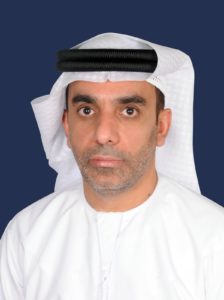Continuing the eradication of polio through the pandemic and beyond
By HE Abdullah Khalifa Al Ghafli
While extraordinary progress has been made, there is still much work to be done in finally eradicating polio worldwide. Though the disease only remains endemic in two countries today – Pakistan and Afghanistan – until poliovirus transmission is interrupted, the risk of a resurgence remains. Studies point to upwards of 200,000 annual cases within ten years if we fail to fully eradicate polio, and so we know there is still work ahead in our goal of ensuring every child has a chance at a healthy future and we remain committed to the last mile in eradicating this disease.
EMIRATES POLIO CAMPAIGN
Launched in 2014, The Emirates Polio Campaign is part of the UAE Pakistan Assistance Programme, which was launched under the directives of President His Highness Sheikh Khalifa bin Zayed Al Nahyan and His Highness Sheikh Mohamed bin Zayed Al Nahyan, Crown Prince of Abu Dhabi, to provide help and humanitarian assistance to the people of Pakistan and support their development initiatives for a better future. The campaign reflects Sheikh Mohamed bin Zayed Al Nahyan’s commitment to strengthen global cooperation to prevent the spread of polio and to protect children from this preventable disease. Since its founding, the campaign has accomplished a tremendous amount in reaching millions of children with this critical vaccination, providing 583,240,876 polio vaccine doses from 2014 to September 2021, benefitting over 102 million Pakistani children. A special team was also allocated to vaccinate 597,000 Afghan refugee children across 22 refugee camps. The EPC’s connection to broader development goals in Pakistan has allowed it to implement innovative and successful approaches in placing polio eradication within the context of the overall health and well-being of the communities it serves. Today, due to the commitment and courage of the UAE Polio Vaccination Campaign, we are now closer than ever before to achieving the objective of having a world free from polio, with only one case reported in Pakistan in the entirety of 2021.
POLIO ERADICATION AND COVID-19
At the onset of the pandemic, vaccination programs around the world were halted due to the outbreak of the COVID-19 and many leaders in the health community warned of a potential new polio crisis. However, The Emirates Polio Campaign overcame these new challenges and was the first program in the world to resume polio vaccinations. Between July 2020 and September 2021, the campaign administered 127,664,157 vaccine doses in Pakistan, of which 75,148,494 were administered in 2021 alone. Particularly in light of the pandemic’s impact, the Emirates Polio Campaign has become even more important for the health of the children it serves; since resuming vaccination campaigns, the Campaign has also taken a strong role in protecting and educating its communities about COVID-19. We invested in the vaccination teams themselves, by training them in preventative measures and safety guidelines and techniques. These teams, as well as their supervisors, security teams, administrators, and field supervisors, were also provided with necessary equipment to safely deliver vaccinations to children, including medical masks, gloves, thermometers, and sterilizers.
FRONTLINE HEALTHCARE WORKERS
Though COVID-19 has set forth challenges in the global health arena, great progress has been made thanks to quick adaptation, particularly through our efforts with the Emirates Polio Campaign – a campaign whose success is a direct result of frontline healthcare workers who showcase selflessness, skill and dedication to helping others. The campaign is implemented thanks to the support and courage of 103,000 health workers, including doctors and nurses, and more than 82,000 members of safety and security, in which the campaign invests in training and development programs that add to the healthcare resources in the communities they operate in. While tackling access gaps, these programs also create jobs and income in areas where employment opportunities are traditionally limited. Local female health care workers in particular are a vital part of the program, uniquely able to access homes and communicate with mothers and caregivers. Trained in interpersonal communication skills, these women engage directly with community members to help educate families, leading to decreased refusals and increased demand for the vaccine. Many of these female health workers feel empowered by their positions and work, as it provides them the opportunity to not only support themselves and their families, but also giving them the courage and means to stand for their rights.

The cooperation and coordination between the different teams within the campaign helped develop training, planning, and implementation methods for polio vaccination, which is the main component of success in reaching the number of children and regions that it did. One of the most important foundations of protecting Polio programs from relapse and maintaining momentum, speed of progress, and success is providing financial funding, vaccines, training team members, and monitoring and examination of target areas in which the virus spreads. Another obstacle we face are field barriers, such as difficult terrain, security risks, harsh climate conditions, natural population movement, malnutrition, weak immunity, and scarce healthcare. It is imperative to monitor and address these field obstacles in order to maintain a base level of success and sustain the momentum of the campaign in protecting those in need.

Twitter handles: @uaepap, @RLMglobalhealth